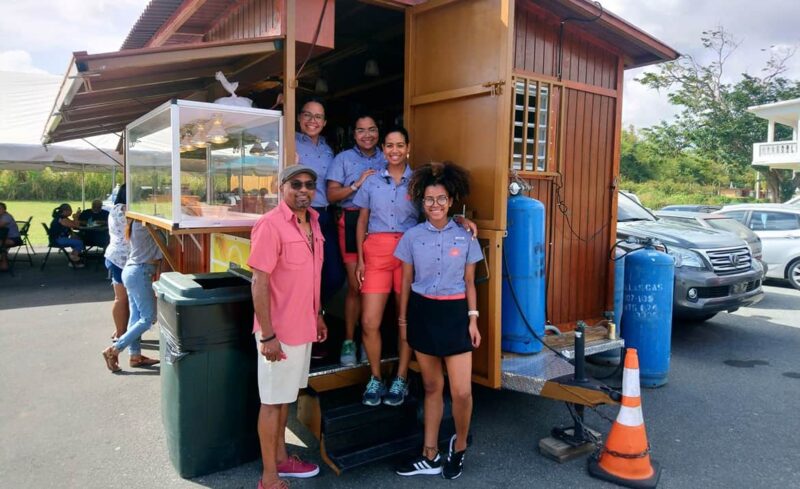NetHope and Internews, supported by a grant from the Center for Disaster Philanthropy, are working together in Puerto Rico to improve understanding and coordination around four important areas of recovery from the 2017 hurricanes: health, mental health, food security, and economic recovery.
Part of the project is working to provide connectivity around 15 Resilience Hubs, resource-driven community spaces, where residents in hard-hit areas can gain access to job training, small business support, and information about health and mental health care. NetHope will be using its familiar model of demand aggregation to lower the high cost of connecting to the Internet—a cost which other grants rarely cover.
Earlier this year, NetHope and Internews planned joint activities to provide Information as Aid, a reflection of the belief that accurate, trusted, local information is a necessary resource in disaster recovery and rebuilding. The project unfolds along two tracks: An information management track will work to improve coordinated action between local and international NGOs. A journalism track will explore projects that NGOs are pursuing and report on their impact, highlighting work in the four themes of recovery.
Internews, working with NetHope and its information manager, will ensure that residents affected by health care access, mental health issues, food insecurity and economic recovery will have increased opportunities to receive and provide information, by forging closer connections to non-governmental service providers working in these areas.
In work since the hurricane, Internews has developed a team of Puerto Rican citizen reporters, who have reported on relief and recovery via a locally-driven news source hosted on Facebook, Information as Aid – Puerto Rico. Through the current partnerships, these reporters visited underserved communities in Arecibo, Morovis, Toa Baja, Fajardo, Maunabo, and Arroyo to assess their information needs. The neighborhoods include locations that are sparsely populated in the mountains, developed near the coast, as well as agricultural villages (farmers and fishing communities), ensuring that the project listens to and amplifies disparate voices.
The citizen reporters will cover two communities each, engaging residents in dialogue, sharing questions and information with NetHope and the data portal, and producing news and media. Knowing that photos and videos tell a more complete story, a photojournalist will join the our citizen reporters.
This citizen reporter content will then be packaged into individual blog posts and shared on the Information as Aid Facebook page and, through a partnership with WALO FM, each correspondent will share their work and what they’re hearing on WALO FM’s station monthly. Beginning in March 2019, WALO reporters also began reporting on the four topic areas.
Working with the Centro de Periodismo Investigativo (Center for Investigative Journalism), the project will also conduct a data journalism training and manage a small team of reporters that will produce investigative journalism reports around the four topics.
This update was originally posted at NetHope.org
[Banner photo: “I had the bad luck of losing my business in its entirety from Hurricane María. Little by little with the help of my family, we got up and we went picking up the wood that flew away from the structure. About four or five months after María, I made a kiosk with tents and I began to rise again.” – Carlos Emilio Rosa, Owner of the Family Corner Restaurant, Barrio Emajaguas, Municipality of Maunabo – Photo by Mayra V. Martínez Noble]
